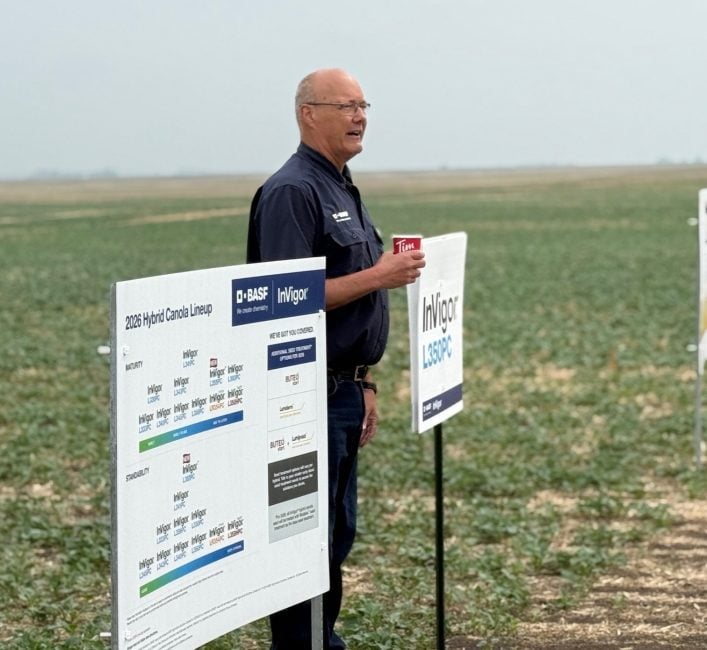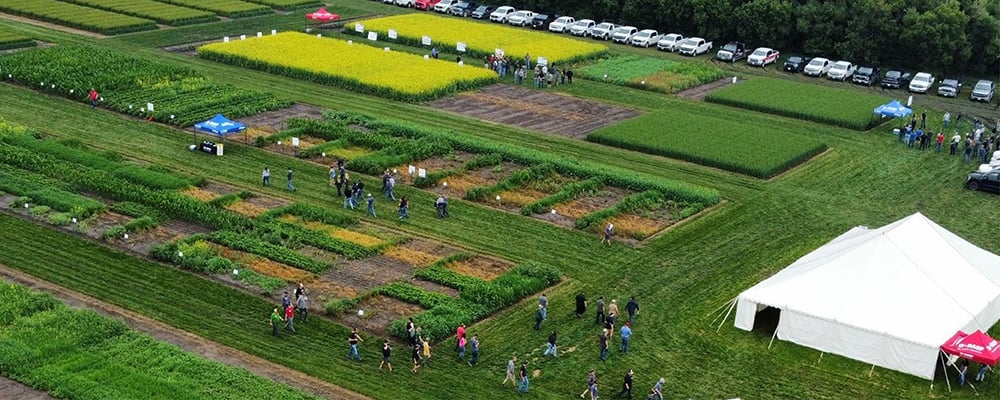Each year, many new canola hybrids come to market, each backed by a lot of claims. One of the best ways to sort through all this information and determine what might work best on your farm is to access local, replicated field trial results.

“When growers are choosing their hybrid each year, they have a lot of information coming at them,” says Harold Brown, technical service specialist with BASF Agricultural Solutions Canada. “On InVigorResults.ca, growers have access to localized, data-driven information from an on-farm setting. They can click on the icon nearest their farm and get a detailed report on what was grown, how it was grown, including details on equipment used, growing conditions, and any unusual pest or moisture challenges and the results at the end of the season.”
InVigorResults.ca is an interactive platform that showcases the results from BASF’s extensive canola trialing program. Designed to be user-friendly and transparent, it provides the information growers and retailers have requested to help them make confident decisions. The map-based interface allows users to view trial sites closest to their operation and compare multiple years of data.
“On the user interface, growers can see data for the past three growing seasons to compare how products performed year-over-year,” says Brown. “It is very transparent with most things about the season reported.”

“I think canola growers should find our results very useful when it comes time to make decisions,” says Rob MacDonald, manager, Agronomic Excellence with BASF. “Our program is unique in the industry, using highly replicated trials that translate into statistically meaningful results. Replication across a field is critical, as it helps us separate true hybrid performance from environmental variability, giving growers confidence in the results.”
InVigor canola hybrids are tested alongside competitor canola hybrids through two robust trialing systems: Demonstration Strip Trial (DST) and Agronomic Excellence (AE) Trials. Together, these systems aim to deliver credible, region-specific insights under local farming conditions.
Two decades of grower run trials
Demonstration Strip Trials have been conducted for more than twenty years. These trials are run using a cooperator grower’s own land, equipment and growing practices. Each DST contains a plot of five to eight hybrid strips grown side-by-side under identical soil, moisture and climate conditions. At one drill width, they are 500 feet long and replicated twice in the same field to help ensure accuracy.
At the end of the season, the crop is either straight cut or swathed at the optimal time using a calibrated weigh wagon for accuracy, with the net yield determined after dockage and moisture adjustments. Trials with excessive variability are flagged so that only statistically valid results are reported.
“InVigor hybrids don’t win every trial, and that’s okay,” says Brown. “What matters is that growers can trust the data. We publish all trial results on InVigorResults.ca, including those where competitors perform better. Even cancelled trials are posted with an explanation, so farmers know exactly why a trial was removed. Transparency is what makes the information credible. Our trials aim to generate useful, statistically valid data that translates into real world results on your farm.”
Seeking out best practices
AE trials are product advancement trials, managed by a BASF agronomist and grown in a cooperator farmer’s field as part of their typical rotation.
“These are more like replicated research trials,” says MacDonald. “They are mid-sized plots and narrower than a DST, using a section of a seed drill and harvested with a small commercial combine. AE trials also typically include more hybrids than a DST and evaluate factors like early-season vigor, maturity and harvest rating. Every hybrid is tested in four replicated plots, which helps give us statistical confidence in the results.”
While these trials are hosted on grower cooperator fields, they are managed directly by BASF personnel, who are focused on identifying best practices to help maximize yield performance and for consistency.
“The results provide much more than yield,” says MacDonald. “They also report on standability, lodging and other agronomic considerations. Being able to compare the performance and agronomics of one hybrid against several others, replicated across multiple locations, helps to give growers a clearer picture of what they can expect in their own fields.”
MacDonald adds that BASF works to get the results posted to InVigorResults.ca as quickly as possible for fall decision making. Usually, results are posted within a week of calculating final yield results.
To see results and to learn more about the trials, visit InVigorResults.ca










